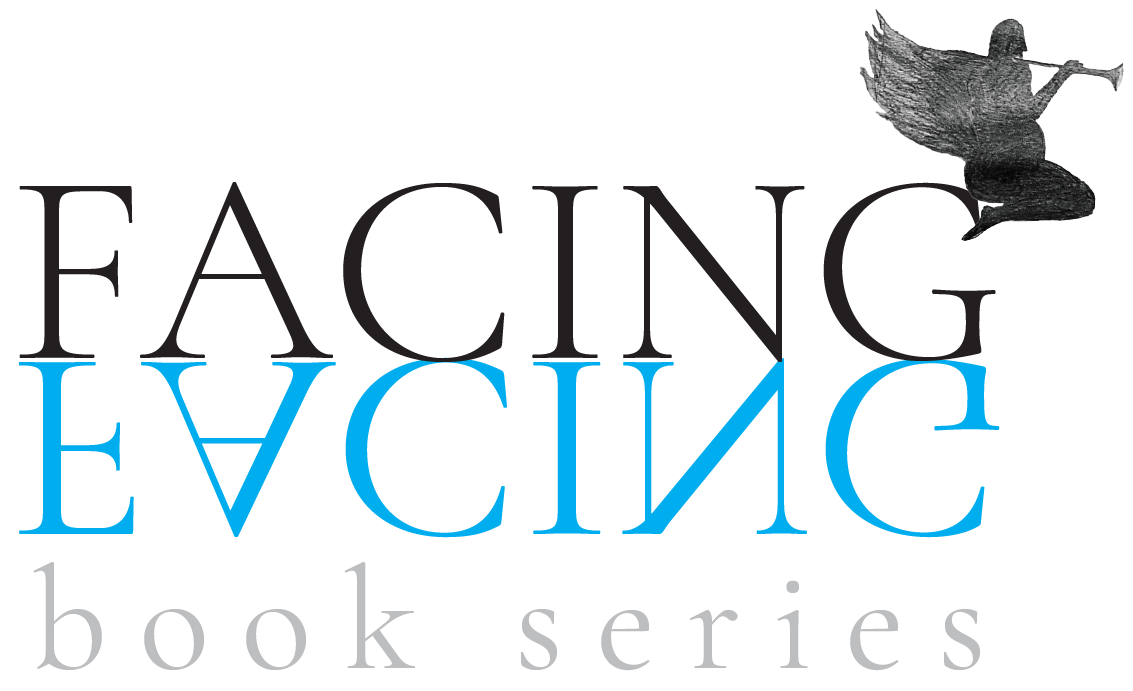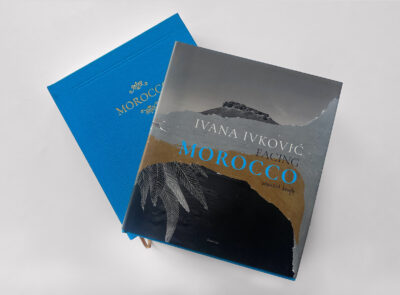
Facing is a synergy of media, genres, poetics and styles of different authors on the same mission – the quest for a sensible image of the world.
Facing is a study of a gaze through feelings, an emotional documentary on travels which can be leafed through and touched.
Facing is a visual-prose-poetic map of encounters and dialogues with other and different cultures, mentalities, and (in)visibile historic and social heritages.
Facing is an artist book, a travel collage, an ethnographic and anthropologic field research through confrontation, a diary of atmosphere and psychological states, a collection of impressions and imprints of nomadic life.
Facing is an artistic essay – a guide through landscapes, cities, roads, and ambiences which can be heard and smelled, which seduce, those we can empathize with and to which all our fears, curiosities and prejudices surrender.
Facing is an intimate testimony about the influences of the other, the unknown, yet desired, so that it can open our senses, liberate us in self-reflection, initiate us into new knowledge, thoughts, and beliefs, and enrich us as human beings.
Facing is about transformative exposures, about the experienced and the anticipated, about the indelible traces of geographies, stories, sights, sounds, and sensations that become encoded into a human and an artistic being.
Facing is for all those who will find and reveal themselves in this special book series through their own experiences, for those who will love it as fiction, or forever carry it within as a unique space they visited.
***
FACING arose from a years-long friendship and collaboration between artists Ivana Ivković and Dragana Radivojević with the support of our publishing house – dsbooks. It was propelled by an idea to convey an image of our world and reveal it in different cognitive perspectives with a special book series for readers (and viewers). For a decade and a half, Ivana has been developing her artistic practice while traveling and attending residential programmes around the world. The extensive archive she collected over the years (photographs, diaries, prose and poetic notes, memorabilia, and so on) served as a starting point for Dragana’s concept of the Facing, the name suggesting complex processes of facing and creating relations. Ivana’s archival material gives a precious insight into geo-emotional explorations, into the space of the liminal, the space between where subtle processes of self-development unfold, of questioning one’s own identity, the space of creativity, intensified by the dislocation and exposure to the new and different. The concept of the Facing also entails tracing back to the artwork originating from the experience of a certain travel, whether simultaneously, years later, or before – as yearning, precognition or anticipation of the place. Thus, besides the possibility of experiencing the travel itself, almost a voyeuristic insight into the creative processes is enabled.
READ MORE
In that sense, the initiative has faced a significant challenge from the beginning: how to use the potential forms and the space of a book as a medium, and translate the genre wiggles into a unique performative gesture of continuous discovery of sensitivity. An additional challenge was brought by the decision to conceptually shape, realize and interpret the practices of artists that strongly emerge into the sphere of the living experience and vice versa. The stories that will unfold through the series in both near and distant future were coming into existence in different time stages and, literally, in all corners of the Earth which can, initially, indicate a travelogue, but only to a certain extent, because the sensations of
geographic dislocations will often function as a guide for internal, intimate peregrinations. The notion of autobiography and the confessional tone are, in this case, inevitable because they stem from the (artistic) first person speech, which can also suggest a diary entry. However, not even this sufficiently explains the content that does not plead to become a beacon in the reconstruction of the sequence of events or experiences, but uses the existing elements of a diary form to construct a stream of psycho-social impressions in encounters with the different, (un)known, (un)expected, forbidden, or sometimes just lovely.
If we were to assume again that this is an artist book, we would overlook an important idea behind Facing that the measure of an object’s uniqueness is determined by the tactility of the reader’s or viewer’s imagination and experience. Playing around with genre references is the only possible way towards the
articulation, emotional and energetic transmission of something (in lack of a simple descriptive expression or phrase) essentially nomadic, yet vortical in its endless motion on the territories of life and art. This approach to forming material is closer to film thinking, the aesthetics and philosophy of a moving picture. Here, in this manner, we can very carefully speak about a kind of a mood board, about the direction and montage of the presented and implied. When speaking about the Facing series as an accomplished bookish form, one should certainly highlight its openness
in the process and in transfers of the cognitive, experiential and emotional. This seems impossible without a moment of facing which always implies exposure to the other, unknown and distant, or close, but often foreign. Facing, as an act of creative reflection and identity upgrade, is a starting point of the Facing series in its selection of art practices which vary from psycho-geographic studies to visual auto-ethnography (in a broader definition of this exploratory method which connects the introspective, personal, experiential with wider contexts of socio-political and cultural practices, systems and meanings). It seems, from all of the above, that genre hybridity and interdisciplinarity of the Facing book series make for a natural outset of journeys through extensive fields of visual media and literary expressions, in order to feel the textures of subjective documents.
Miroslav Karić
(author is an art historian and curator of the Museum of Contemporary Art in Belgrade)
READ LESS


